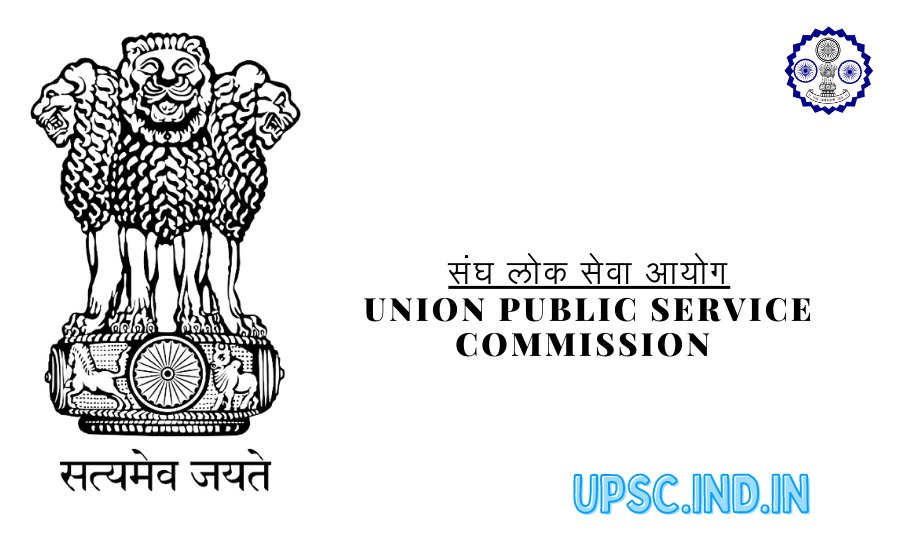Union Public Service Commission
Union Public Service Commission
The Union Public Service Commission (UPSC) stands as a cornerstone of India’s democratic framework, responsible for recruiting and selecting candidates to serve in various administrative roles across the country. Established under Article 315 of the Indian Constitution, the UPSC plays a pivotal role in ensuring merit-based, transparent, and fair appointments to key government positions. This article delves into the significance, functions, challenges, and reforms associated with the UPSC.
Significance and Functions: The UPSC serves as a vital bridge between the government and the citizens by conducting rigorous examinations and interviews to identify individuals with the potential to become future civil servants. Its primary functions include:
- Conducting Examinations: The UPSC administers a range of examinations, such as the Civil Services Examination (CSE), Engineering Services Examination (ESE), and Combined Defence Services Examination (CDSE), among others. These examinations serve as gateways to prestigious positions in the Indian Administrative Service (IAS), Indian Police Service (IPS), Indian Foreign Service (IFS).
- Selecting the Best: By evaluating candidates’ knowledge, aptitude, and personality traits, the UPSC ensures that those selected possess the skills necessary to address complex governance challenges and serve the diverse needs of India’s citizens.
- Impartiality and Transparency: The UPSC’s adherence to rigorous evaluation processes and standardized criteria ensures that appointments are made without bias or favoritism, enhancing the credibility and legitimacy of the administrative apparatus.
Challenges Faced: While the UPSC’s role is crucial, it faces several challenges that impact its effectiveness and efficiency:
- Competitive Pressure: The high level of competition in UPSC examinations can lead to immense pressure on aspirants, sometimes resulting in mental health issues and a narrow focus on rote learning.
- Diversity and Inclusion: Despite efforts to promote diversity, underrepresentation of certain marginalized groups in the civil services remains a concern.
- Evolution of Roles: As administrative roles evolve to address modern governance challenges, there is a need to adapt examination patterns and selection criteria accordingly.
Reforms and Future Directions: To maintain the UPSC’s relevance and effectiveness, certain reforms could be considered:
- Mental Health Support: Introducing support systems to help aspirants cope with stress and anxiety could mitigate the negative impact of competitive pressure.
- Inclusive Outreach: Collaborative efforts with educational institutions and targeted outreach programs can encourage a more diverse pool of candidates to participate in UPSC examinations.
- Technology Integration: Utilizing technology for various stages of the examination process could enhance efficiency, transparency, and accessibility.
Conclusion: The Union Public Service Commission occupies a central role in shaping India’s administrative landscape. By selecting individuals based on merit, integrity, and aptitude, the UPSC contributes to the development and effective functioning of the nation’s governance structure. While challenges persist, ongoing reforms and adaptability will ensure that the UPSC continues to uphold its pivotal role in India’s democratic framework.
TO MORE DETAIL – CHECK THIS
FOLLOW US TO MORE DETAIL
What is the UPSC?
The Union Public Service Commission (UPSC) is a constitutional body established under Article 315 of the Indian Constitution. It is responsible for conducting examinations and selecting candidates for various civil services and administrative positions within the Indian government.
What is the main function of the UPSC?
The primary function of the UPSC is to conduct competitive examinations and interviews to identify qualified individuals for appointments to the Indian Administrative Service (IAS), Indian Police Service (IPS), Indian Foreign Service (IFS), and other Group A and Group B services.
Which examinations are conducted by the UPSC?
The UPSC conducts a range of examinations, including the Civil Services Examination (CSE), Engineering Services Examination (ESE), Combined Defence Services Examination (CDSE), National Defence Academy Examination (NDA), and many more.
How does the UPSC select candidates?
The selection process involves a multi-stage approach, including preliminary and mains written examinations, followed by an interview (personality test). The selection is based on a candidate’s performance in these stages, ensuring a holistic evaluation of knowledge, aptitude, and personality.
What is the significance of the UPSC’s role?
The UPSC’s role is crucial in ensuring that government positions are filled with qualified and competent individuals who possess the skills necessary for effective governance, policy formulation, and implementation.
What challenges does the UPSC face?
Challenges include the immense competition and pressure on aspirants, the need for greater diversity and inclusivity in selections, and the requirement to adapt examination patterns to changing administrative roles and challenges.
How diverse are the candidates selected by the UPSC?
Efforts have been made to promote diversity, but underrepresentation of certain marginalized groups is still a concern. The UPSC aims to address this by implementing targeted outreach programs and collaborations with educational institutions.
Are there any proposed reforms for the UPSC?
Proposed reforms include introducing mental health support for aspirants, leveraging technology for examination processes, and continuously adapting examination patterns to align with modern administrative demands.
How does the UPSC contribute to transparent and unbiased appointments?
The UPSC’s standardized evaluation processes, strict adherence to merit-based selection, and comprehensive assessment methods contribute to transparent and unbiased appointments, enhancing the credibility of the administrative apparatus.
How can I prepare for UPSC examinations?
Preparing for UPSC examinations requires a combination of comprehensive study, time management, current affairs awareness, and consistent practice. Many aspirants opt for coaching, self-study, and online resources to prepare effectively.
Is the UPSC’s examination process the same for all services?
No, the examination process may vary for different services. While certain stages, like the preliminary examination, might be common, the mains examination and interview process can differ based on the requirements of each service.
How does the UPSC contribute to the administrative excellence of India?
By selecting candidates based on merit, integrity, and aptitude, the UPSC ensures that India’s administrative roles are filled by individuals who possess the skills needed to tackle complex governance challenges, formulate effective policies, and serve the nation’s diverse needs.










